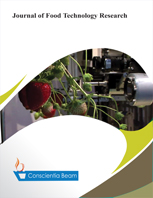Traditional Technologies and Probiotic Properties of Bacillus Strains Isolated from Kawal -A Chad Traditional Fermented Food Condiment
DOI:
https://doi.org/10.18488/journal.58.2019.62.57.71Abstract
Kawal is a condiment produced by the traditional fermentation of Sicklepod (Senna obtusifolia) leaves. Many people from the different part of Chad use it for flavoring as well as a substitute of meat. The fermentation techniques used in kawal production are often applied on a small scale and still mainly at the household level, characterized by the use of simple and rudiment equipment. This study was conducted firstly to investigate the Kawal traditional methods production. Secondly, to evaluate probiotic potential of Bacillus species isolated in order to develop starter cultures for kawal production. Protease, amylase and phytase activities of Bacillus strains were screened. The candidate were screened in vitro for antimicrobial activity against, Micococcus luteus LMG3293, Staphylococcus aureus ATCC 25923, Escherichia coli ATCC 8739 and Salmonella spp. Biofilm synthesis, Antibiotics sensitivity, tolerance to simulated gastric and intestinal juice were also evaluated. The majority of selected strains formed biofilms, produced amylase and protease, some of the strain produced phytase by forming clearing zones around the growth of the colonies. For biochemical conditions for simulated gastric and intestinal juice, among the selected strains tested, some had the highest survival in simulated gastric juice and better viability in simulated intestinal juice. The selected strains showed sensitive to a panel of antibiotics and they presented resistance to penicillin G, oxacycline and bacitracin. Some strains showed an inhibitory effect on all of the indicator bacteria tested. Overall, some of these selected strains could be used as potential microbial starters for the controlled fermentation of kawal.

